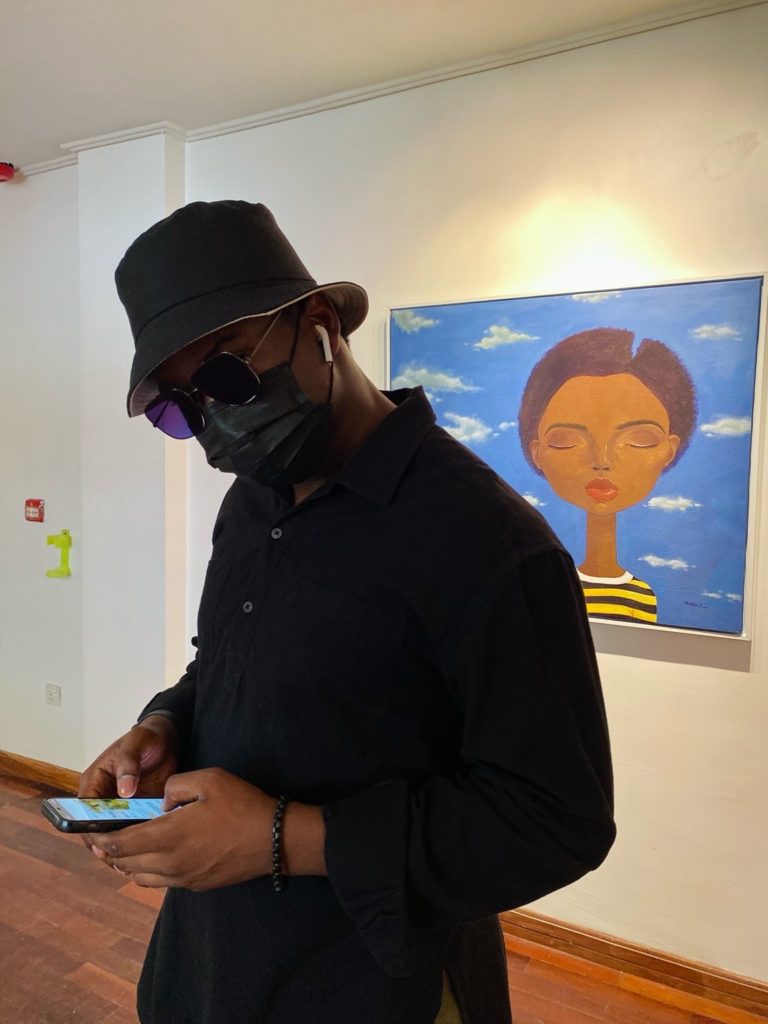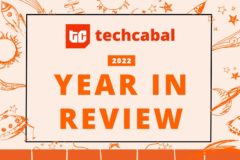Ojimaojo Udale-Ameh, who usually goes by his moniker OJ, is an engineering manager at PiggyVest. He’s a straight shooter adept at using his unique set of technical skills to stay at the top of class and game.
I’m bringing OJ to Centre Stage because he is an exemplary leader and asset to Africa’s ecosystem. Not only is he cerebral about making decisions, but he’s also intentional about honing his skills and dedicating time to fine-tuning his engineering mind.

Tell me about some of the complex problems you’ve had to solve in your role as an engineering manager?
So one of the most challenging problems I’ve had to solve is bridging the gap between the engineering room and other teams within the company. A part of my job is to help internal and external stakeholders understand what my department is working on from a non-engineering standpoint.
What kind of thinking or behaviour goes into successfully bridging that gap?
For one, I have to be available to answer questions. I also have to clearly articulate the reasoning behind certain engineering decisions and explain why we do what we do. The challenge is really in being able to effectively communicate these decisions while also ensuring that your non-engineering team members are tracking with you.
How were you able to come up with solutions to solve that challenge?
I had to work hand-in-hand with Layo to help translate what we are working on to other teams– especially the support team. (Layo Ogunbanwo is another powerhouse team member at PiggyVest. She is their VP, Product Strategy).
Since we are a customer-centric organisation, we believe in carrying our customers along every step of the way. Carrying people along requires you to communicate transparently.
What kind of fears do engineering managers have where their roles are concerned?
We worry about leading unmotivated people. Thankfully I don’t have that problem at PiggyVest, but speaking generally, no one wants to lead an unmotivated team. There’s also the fear that comes with working with third-party providers. On the one hand, our ecosystem cannot thrive without partnerships. Still, on the other hand, someone has to be responsible for soothing customers when something goes on the other end.
Do you have any engineering hacks to share with us?
Build frequently, read often, research thoroughly, and repeat.
What kind of content do you like to read, watch, or listen to?
I like podcasts, but I’m generally not committed to auditory learning, so I default to reading short articles about engineering. Some of my favourite writers are skilled at creating mental models that you can follow as you read. Chidi Williams is one of them – he’s a brilliant writer.
Speaking specifically to your role at PiggyVest, when does your team experience extreme busyness?
Our peak periods occur at the end of each quarter. As you can imagine, the end of the year is a pretty busy period because we’re a consumer-facing company. We are aware of consumer trends, behaviours and spending patterns.
Backend vs Frontend… tell me why one is equally as important as the other?
Frontend development is vital because it combines two essential concepts: user experience and user interface. When a customer opens your app, they are interacting with the work of one or more frontend developers. On the other side of the coin, no matter how appealing your Frontend is, your user will feel the impact if your backend is faulty.
What software tools help you in your current role?
That’s easy– Basecamp. I also heavily use a platform called Grafana – it gives me an overview of all our systems in one place. These two tools are super helpful in my current role.
What does good leadership look like for engineering managers?
Engineering managers must know how to communicate effectively. I struggled with this skill at the beginning of my career journey. After university, I co-founded three startups. Because I worked as the sole engineer during the businesses’ early years, I didn’t need to talk to many people. But when we began to build out the engineering team, I realized that I had a communications gap that needed my attention.
A solid engineering manager also invites their team members into nascent product ideation conversations. You cannot carry everyone along the way, but you can bring them in from the beginning.
Also, it helps to be accessible. Accessible managers know how to lead and grow successful teams.
What would you say to aspiring engineering managers?
I think aspiring engineering managers should know that managing people is not easy. Your team is going to be filled with different personalities, temperaments, and mindsets. You’ll come to understand that people aren’t computers – you can’t just leave them to run on their own. Successful managers support their team members every step of the way.
If you enjoyed reading today’s edition of Centre Stage, please share it in your Whatsapp, Telegram, and LinkedIn groups. Thank you!




















